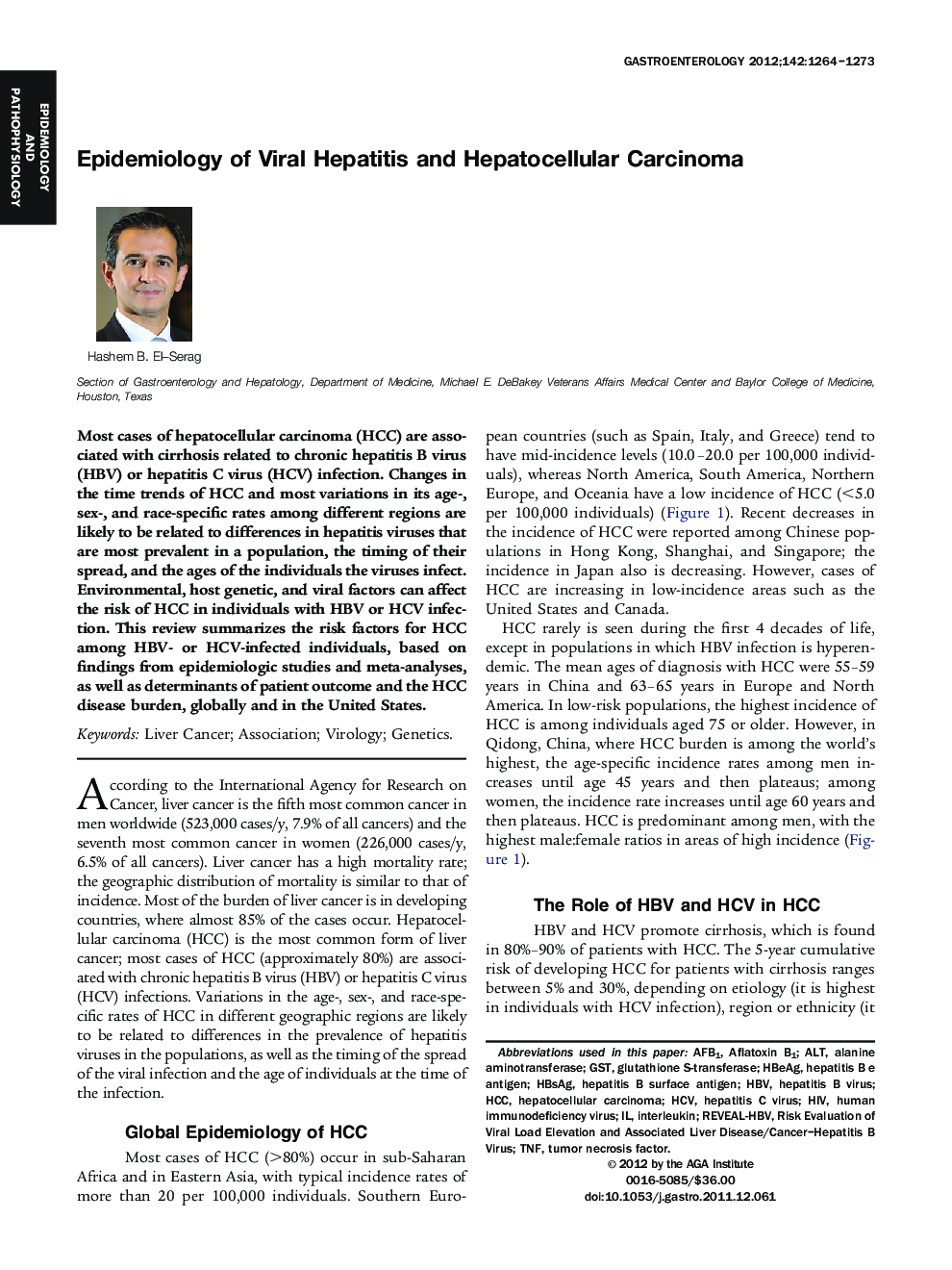| Article ID | Journal | Published Year | Pages | File Type |
|---|---|---|---|---|
| 3293150 | Gastroenterology | 2012 | 11 Pages |
Abstract
Most cases of hepatocellular carcinoma (HCC) are associated with cirrhosis related to chronic hepatitis B virus (HBV) or hepatitis C virus (HCV) infection. Changes in the time trends of HCC and most variations in its age-, sex-, and race-specific rates among different regions are likely to be related to differences in hepatitis viruses that are most prevalent in a population, the timing of their spread, and the ages of the individuals the viruses infect. Environmental, host genetic, and viral factors can affect the risk of HCC in individuals with HBV or HCV infection. This review summarizes the risk factors for HCC among HBV- or HCV-infected individuals, based on findings from epidemiologic studies and meta-analyses, as well as determinants of patient outcome and the HCC disease burden, globally and in the United States.
Keywords
TNFHBsAgHBeAgALTGSTAFB1HCCAflatoxin B1Alanine aminotransferaseHepatitis B surface antigenAssociationinterleukinLiver cancertumor necrosis factorHepatitis B e antigenHBVHCVHepatitis C virusvirologyhuman immunodeficiency virusHIVhepatitis B virusGeneticsHepatocellular carcinomaglutathione S-transferase
Related Topics
Health Sciences
Medicine and Dentistry
Gastroenterology
Authors
Hashem B. El-Serag,
